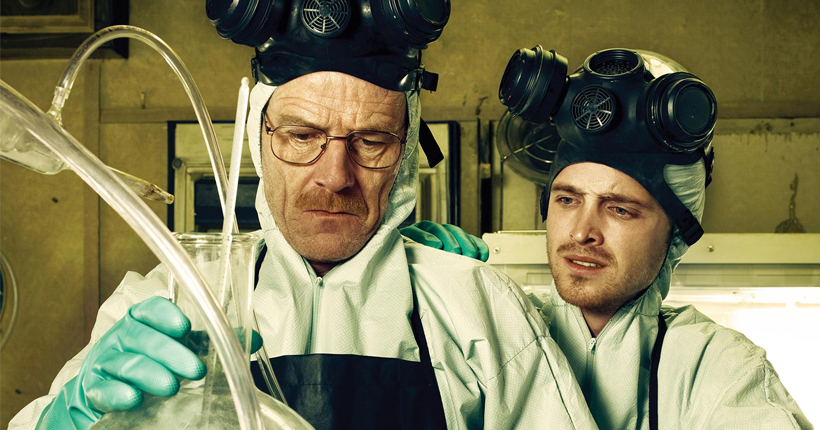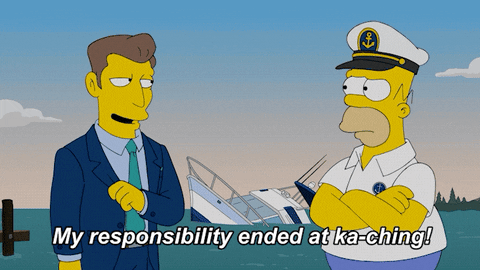What can I do with my chemistry degree?
Graduating from university with a chemistry degree is a massive step. It requires a lot of dedication and upon graduation, it’s natural to feel overwhelmed and confused over your sense of opportunities.
Initially, you chose to study chemistry to help you understand the world around you. It pertains to everything, from the food we eat to the medicine keeping us healthy, the quality of water we drink and the air we breathe. If the next steps, such as graduate school, an internship or a graduate job have not been established, there can be a crushing sense of pressure - not helped by the fact that we're in the midst of a pandemic! As a graduate, understand that a chemistry qualification opens up a world of alternative career options.
Universities often require the best grades to attain a chemistry degree. If you are getting worked up about the competitive nature of the post-grad world, you are not alone and with a chemistry degree under your belt you really have no reason to worry. Despite the uncertainty, having studied chemistry can provide you with a number of useful transferrable skills for different roles that can be highly valued by employers across all sectors.

Less than a third of chemistry degree graduates get a job working in the laboratory or have jobs that are closely related to their studies. If you decide not to pursue a career in a chemistry graduate scheme, there is still a realm of different opportunities that are open to you. If working for a giant corporation is not your thing, startups are always on the look out for graduates who can bring something new to the team. Startups & SMEs often look beyond the degree and consider your goals and interests post-graduation, whilst being equally impressed by your analytical chemistry studies.

Margaret Thatcher is the perfect example of a chemistry university graduate from Oxford who grasped work opportunities outside of her chosen field of study. Although she pursued a career as a research scientist for a brief three years after graduation, she eventually made the move into politics, and the rest is history. She demonstrates that chemistry students are an adaptable group and that there’s a wide range of establishments searching for your skills.
Alternative career options:
- Fintech & Finance
- Business Development
- Tech & IT
- Marketing & PR
- Media & Advertising
- Data & Analytics
The roles cover a wide breadth of fields and this displays the array of industries chemistry graduates can lend a hand in. Aside from niche roles, the limitations on what you are eligible to do are very little and chemistry graduates ought to apply confidently.
However, if you prefer staying within the field of the sciences, here are some chemistry-oriented jobs...
Jobs that relate:
- Researcher
- Environmental consultant
- Science Writer
- Data Analyst
These are all jobs that would find a chemistry degree beneficial. It’s important to not feel restricted to the roles you apply to as a chemistry grad if you are looking to deviate from the traditional path since the opportunities for you are endless.
Still not convinced? Here’s a list of people who studied chemistry and excelled in unrelated vocations.
- Margaret Thatcher (politician)
- Kurt Vonnegut (author)
- Indra Nooyi (CEO of PepsiCo)
- Angela Merkel (Chancellor of Germany)
- Pope Francis (Head of the Roman Catholic Church)
 Who employs chemistry grads?
Who employs chemistry grads?
Chemistry is considered a difficult degree. Applying to roles outside of science and chemistry are well received amongst employers and uncover the numerous opportunities for chemistry graduates.
When seeking your first graduate job, its normal not to have too much work experience, so your degree will be taken into heavy consideration. Indicators such as university, previous work experience and title, extracurricular and a good CV will set you apart, as it is generally understood that candidates with chemistry degrees are extremely intelligent, logical and have an amazing work ethic based on the amount of work a chemistry graduate must produce during university studies.
Employers of chemistry graduates need to fill roles that require research, analysis and data handling. Employers hiring in such fields aim to enroll graduates with the appropriate modules where the role will be filled seamlessly.
Naturally, many graduates change their direction, so if you are looking to move into something novel and stray from the chemistry background it’s important to tweak your CV and approach employers strategically. It’s important to use your science background as a point of influence and place yourself as having transferrable skills and other skills aligning with the roles you are applying for.
The University of Nottingham states: “Chemistry graduates are well prepared for a wide range of employment and postgraduate opportunities. In addition to equipping you with theoretical and practical skills in chemistry, a degree in chemistry also demonstrates that you can think logically and critically, solve complex problems and manage your time effectively. Consequently, graduates may also be employed in professions including those in finance, education, marketing and media.”
 What sorts of jobs do chemistry grads do?
What sorts of jobs do chemistry grads do?
Many chemistry graduates can be found entering the world of business, finance and management, with only about a third of chemistry graduates fill science professions. These jobs are often occupied through graduate schemes, where the analytic science degree is highly valued. These roles are usually available on a corporate level, however if you are looking for roles in startups and smaller companies here are some disciplines offering chemistry grads roles:
Fintech & Finance
Don’t have a background in finance? No problem! You don’t need a degree in finance to enjoy a challenging and rewarding career in the finance field. Fintech is fairly new to the employment world and finance scene. It’s receiving a lot of buzz as a new technology that competes and disrupts the traditional financial method & the business sector. Skills needed for roles within this industry are data analysis, data reporting, the ability to think logically and high level of intellect. With the heave amount of technology involved, it would also help being knowledgeable in tech and software.
 Human Resources (HR)
Human Resources (HR)
There’s an array of opportunities within the HR field. It’s an integral part of every company where connecting with people and communication are highly valued. Being able to communicate and having the ability to build relationships with candidates and clients is essential in attaining an HR graduate job. As a chemistry graduate, your ability to work with teams seen through work on labs and ability to correspond verbally and written sets you apart for a job in recruitment.
 Business Development
Business Development
Biz Dev is basically pursuing opportunities for long term-growth from clients and has become a coveted field for graduates. Skills required to fill roles in this realm include being good at developing and maintaining client relations and confident communications skills. Chemistry graduates can excel in Biz Dev roles through their communication, presentation and numeracy skills.
 Tech & IT
Tech & IT
Working in tech and IT means not only being able to use software, handle data and have technical skills; skills that chemistry graduates are known to possess. However, there are various companies looking to recruit software engineers which don‘t require you to have any knowledge of programming languages. The interviews they hold test whether you think in the right way and if they like you then they’ll train you to write in whatever language(s) they use. IT also requires interpersonal skills where the need to be able to successfully interact with colleagues, vendors and clients, managing departments and communicating ideas.
 Marketing & PR
Marketing & PR
Marketing is made of many facets from content creation, copy, social media, advertising and analytics to assess the best ways to increase reach and engagement with the targeted audience. Usually in larger corporations these subjects can be handled by multiple teams. However, with smaller companies such as startups the responsibilities involved in marketing and PR can be combined. A chemistry graduate would do well with their skills of analysis to understand the data and analytics involved with marketing reports. There is much experimentation involved to figure out the best formula for having the most impact.
 Data & Analytics
Data & Analytics
Data and analytics is what increases the employability odds of chemistry graduates to other degrees. Chemistry graduates are skilled at thinking logically and analytically, using statistics and doing calculations which will prove to be beneficial in the data and analytics field. Chemistry studies allows graduates to communicate complex theories and ideas in a clear and concise method, which will help allow clients to understand in a layperson’s terms.
 Becoming a postgraduate research student
Becoming a postgraduate research student
You might consider pursuing postgraduate studies as a research student. The application process is very different to the process for applying to do an undergraduate degree and is different at each university. In most cases, you need a professor who wants to take you into their group and you need funding (funding can come from the professor, the department, separate scholarships, industry, the government and various other sources). For the application, you will need at least two references and usually a CV and cover letter, but they could require a personal statement or a research proposal.
The skills involved in a research degree are different to what most people will be used to, having completed an undergraduate degree; you often have to be very persistent and things usually don’t work for a long time because theory and practice don’t marry up in the way you hope. Whilst it can still be chaotic, it’s more like having a ‘real job’; you have a desk in an office, you are usually expected to work regular hours and you have a ‘boss’. You also have to do things like making posters, giving presentations and writing papers, which you may not have done as an undergraduate.
That being said, you still have to revise (for progress reviews, meetings with sponsors, the viva, etc.), but it’s more about familiarising yourself with work you have done and papers you have read than cramming loads of information in. And you still have to do courses alongside your research, but they’re much less intense than undergraduate courses. Usually it’s a handful of lectures over a few weeks with a small assignment at the end or it’s a course that will be completed full time over one or two days.
Lots of postgraduates teach undergraduates or demonstrate in undergraduate laboratories. It’s really enjoyable and you get paid a fairly handsome hourly rate. As a postgraduate, life is less of a rush. Sometimes you have an experiment that you have to wait for and it’s fine that you’re not rushing around doing loads of other stuff.
 What skills can I put on my CV?
What skills can I put on my CV?
Following the successful completion of your chemistry degree, you demonstrate the ability to master complex ideas and willingness to learn new information and techniques that will be required for the roles you wish to fill. Employers often look for these qualities that will help fit the company culture and ensure success in the company.
Chemistry graduates are not limited in skills. The ability to be analytical or think logically and critically are necessary for every graduate job. Graduates with chemistry degrees have a proven track record of being able to solve problems, organize time and projects (as seen through labs), writing and verbally communicating findings (through lab reports and presentations) and handling data. The ability to work in teams, doing good research and advanced IT skills are additional examples of what a technical science background can do to enhance a chemistry graduate’s employability and present you as a particularly appealing employee.
 How do I improve my employability after a chemistry degree?
How do I improve my employability after a chemistry degree?
There’s a lot that depends on the employability of a graduate- the roles you wish to fill, the industry you are looking to get into and previous experience all influence your employment journey. It’s important to take these into consideration whilst tweaking your CV to strategically improve your odds for the roles you apply to.
If you are happy to stay within the science realm, you can improve your employability by channeling your energy in developing your skills base and building your knowledge base. This may involve continuing education or taking complementary courses to allow you to have a competitive edge against other candidates. By illustrating your keenness in continuing your studies and exploring subjects further is a sign to employers that you are dedicated to the subject. However, continuing education for the sake of prolonging your entry into the job market and lack of enthusiasm for the subject are indicators you’re better off looking for jobs outside of the scientific realm.
As with most graduates who fill unrelated degrees, gaining experience in the field in creative ways is the key to getting hired. With the world at our fingertips familiarizing yourself with the field you apply for and honing skills related to the roles through are crucial to your success.
Another great way to gain experience can be through temporary paid internships to have something to add to your CV if it feels lacking or incomplete. This increases your chance of you getting hired and it’s a perfect opportunity to figure out your fit for the role and the company as well as building up a network before committing fulltime or moving into a progressive role.
 Not sure what to do?
Not sure what to do?
Still unsure and reassessing your chemistry degree? Be proactive about the hobbies and interests of your life, volunteering for projects allow you to network and find direction. Consider your alumni careers services and asking for advice. Informational interviews with people who have jobs that look interesting to you can be inspiring in figuring out what you would like to do for a career. Do not despair. Rethinking your degree and being disenchanted with your chosen direction are realities most graduates face post-graduation. However, transferrable skills gained in any field can get you into the career of your dreams even if it’s not related to chemistry. It is only the beginning of your career and exploring the opportunities, and the innate skills chemistry graduates carry will result in a graduate job in no time.
Special thanks goes to Joe Gregory for helping us out with this blog post!
Do you want to work in startups? Check out some opportunities here!
BrighterBox connects the fastest-growing companies with the brightest graduates.
Graduate Jobs



